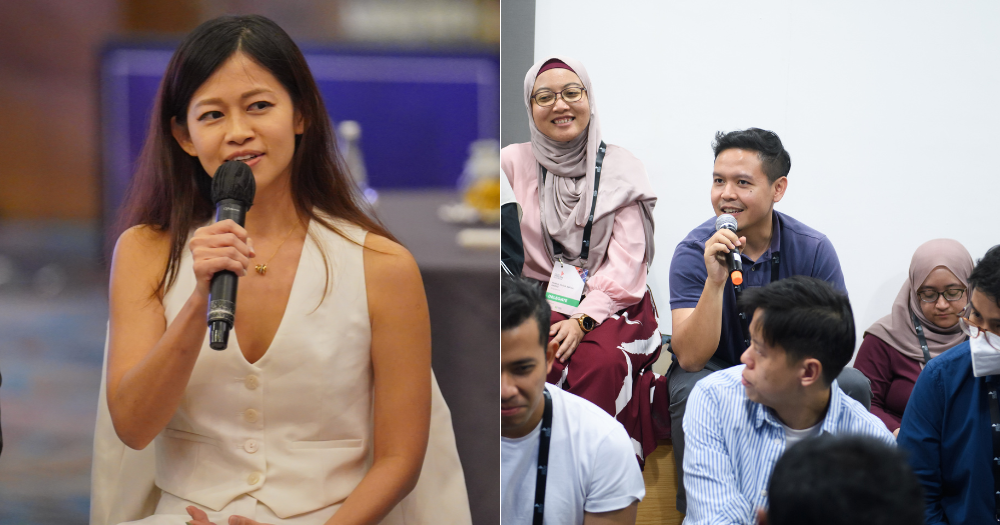Working overseas can be fruitful, but it can also be demanding. We spoke to two young Singaporeans who spent time overseas for work. They’ve had slightly different experiences — one being based overseas and the other travelling frequently to different countries — but both agree that overseas work experience is something all Singaporeans should try, if they have the chance.
They also share about their experience as participants of the 4th ASEAN Youth Fellowship (AYF) Programme and how it’s helped build their connections with like-minded young people in the region.
Over the traffic noise of bustling Jakarta and via a mostly-stable data connection, Hafiz Kasman did his interview with Mothership en route to the airport to catch yet another flight.
The 29-year-old has been jetting around different cities in Southeast Asia for work, and to some, it may seem like he is living the dream — having the freedom and independence of staying in his own place in Jakarta, and getting to experience different countries and cultures.
And while most Singaporeans might be happy travelling once or twice per year, Lim Ee Ling, has been abroad 14 times this past year, flying to numerous countries for her job at venture capital firm 500 Global.
The 36-year-old is based in Singapore and her trips range from a week to two weeks long. Having to travel for work every so often gives her the rare opportunity of seeing the world, one new country at a time.
The idea of working overseas is often romanticised and can seem like an obvious choice, if it is extended to you.
For Hafiz and Lim, however, travelling for work requires some hard decisions and thinking about one’s priorities in life, especially when family is involved.
But their experience shows that working overseas can be rewarding in its own way — as it broadens one’s worldview and perception of Singapore.
The two young Singaporeans share an insight into their lives, and their advice for those who are considering a career that takes them overseas.
How does one decide to work overseas?
For Hafiz, moving to Indonesia was a natural and easy decision.
He was always inclined to travel abroad to work, having been bitten by the travel bug in his undergraduate days, where he visited ten countries for exchange programmes, internships, and study trips.
However, a 2017 internship in Jakarta left a unique impression.
He began to see Indonesia as an exciting market, and was drawn to its possibilities.
He found an interest in building a business in a larger market, which made it the perfect palace for him to start his own business.
He did not have to think twice about moving overseas for work, and the move itself was relatively seamless.
Friends there helped him secure his first apartment and gym membership and even introduced him to new contacts.
Having previously lived with his parents in Singapore, Hafiz has taken to the new-found freedom of living alone since last year.
Similarly, Lim took to travelling for work easily.
Today, her work takes her to various cities as she studies how they set up and implement start-up programmes as the Executive Director of her company’s Market Launch team.
Like Hafiz, Lim was clear that she would want to travel for work from early on in her career.
Her first job as an investment banker took her overseas to Indonesia, the Philippines and Malaysia, and she worked hard to expand her scope.
And when she joined 500 Global, Lim knew she would not be satisfied with a role in Singapore alone, and spoke to her boss about a regional role.
She proved her capabilities and was promoted as the Head of APAC Business Development for 500 Global before she moved into her current international role.
Honing your awareness of cultural differences
Having the drive to go overseas and pursue a career is one thing, but following through can be complicated, as cultural differences can prove tricky and require you to adapt.
In Egypt and Israel earlier last year, Lim was impressed by how direct people were.
She shared that her questions would draw strikingly straightforward answers — especially when comparing them to Americans and Canadians, who she feels are more diplomatic in their responses.
Her time in Egypt also left an impression as it drove home the importance of diversity in business. Lim recalls meeting a startup founder who came into a meeting with three others from his c-suite.
With one look, the diversity in the group could be seen. The team consisted of both men and women from different ethnicities. Lim observed that whenever the founder was asked a question, he would let others chime in, encourage them to answer, and even dispute him if they disagreed.
Making an effort to build relationships
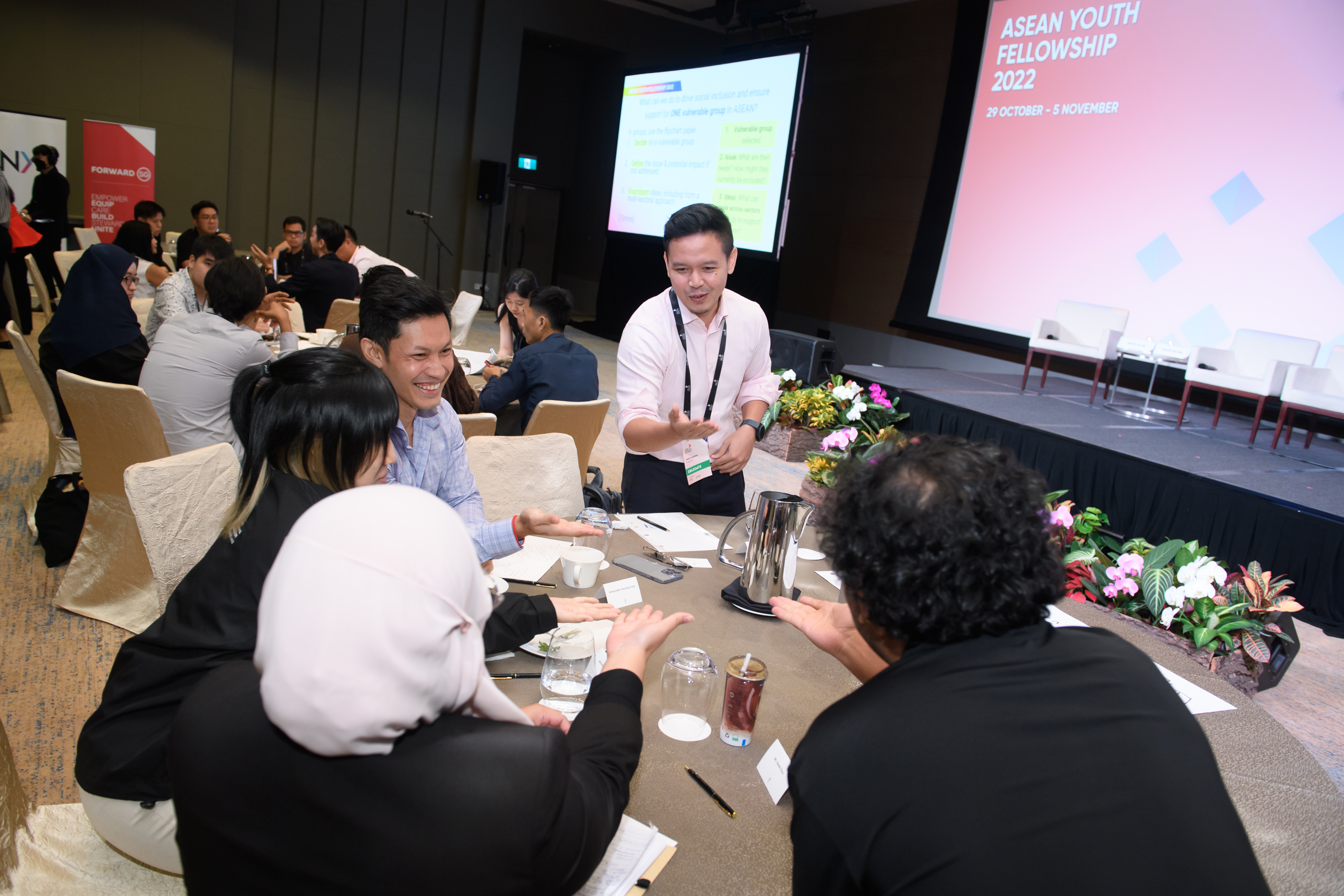 Photo from National Youth Council
Photo from National Youth Council
Hafiz noted how important it was to build relationships with clients and others in Indonesia.
He estimates that he spends 20 to 30 per cent of his time meeting people with no other agenda than to get to know them.
“The relationships formed are important as you do not know if there’s a new partnership to form connections,” he shared.
One of the necessary adaptations he’s learnt to practise in Indonesia is to always factor in extra time for meetings, as a spontaneous invite to coffee can throw off one’s schedule.
Lim has also picked up on cultural differences to note when it comes to building relationships with others.
In countries like Japan and Korea, Lim observed that meals with the teams and clients are essential to relationship-building. It was uncommon to pitch a business idea and talk about a project at the meal itself.
This is unlike her experience in the United States and Canada, where you would launch into business discussions during the meal itself, with little to no personal talk.
Israel offered her yet another contrasting example, as she noticed that people she met in Israel focused more on building trust with clients.
“You do not have to be buddy-buddy and have a personal relationship to build trust,” she said.
“Trust can be built cognitively through work outcomes, but you still need to work on developing an affective relationship.”
Lim shared that through her experiences travelling to different countries and immersing herself in different cultures, she could see how people from different cultures collaborate, communicate and make decisions differently.
However, she pointed out that cultures which emphasise relationship-building have pros and cons.
Introverts may want to be by themselves, and might suffer in a relationship-driven environment where there is more of a need to socialise at the workplace.
How much do you need to adapt in order to thrive overseas?
Such differing cultures make it crucial to adapt and learn quickly, something both Lim and Hafiz had to do
As Lim found out, the preferred way of business communication in Israel was through WhatsApp, including voice notes and emojis.
She initially tried to take conversations to emails, but the Israelis found emails cold and saw it as if she was trying to establish boundaries.
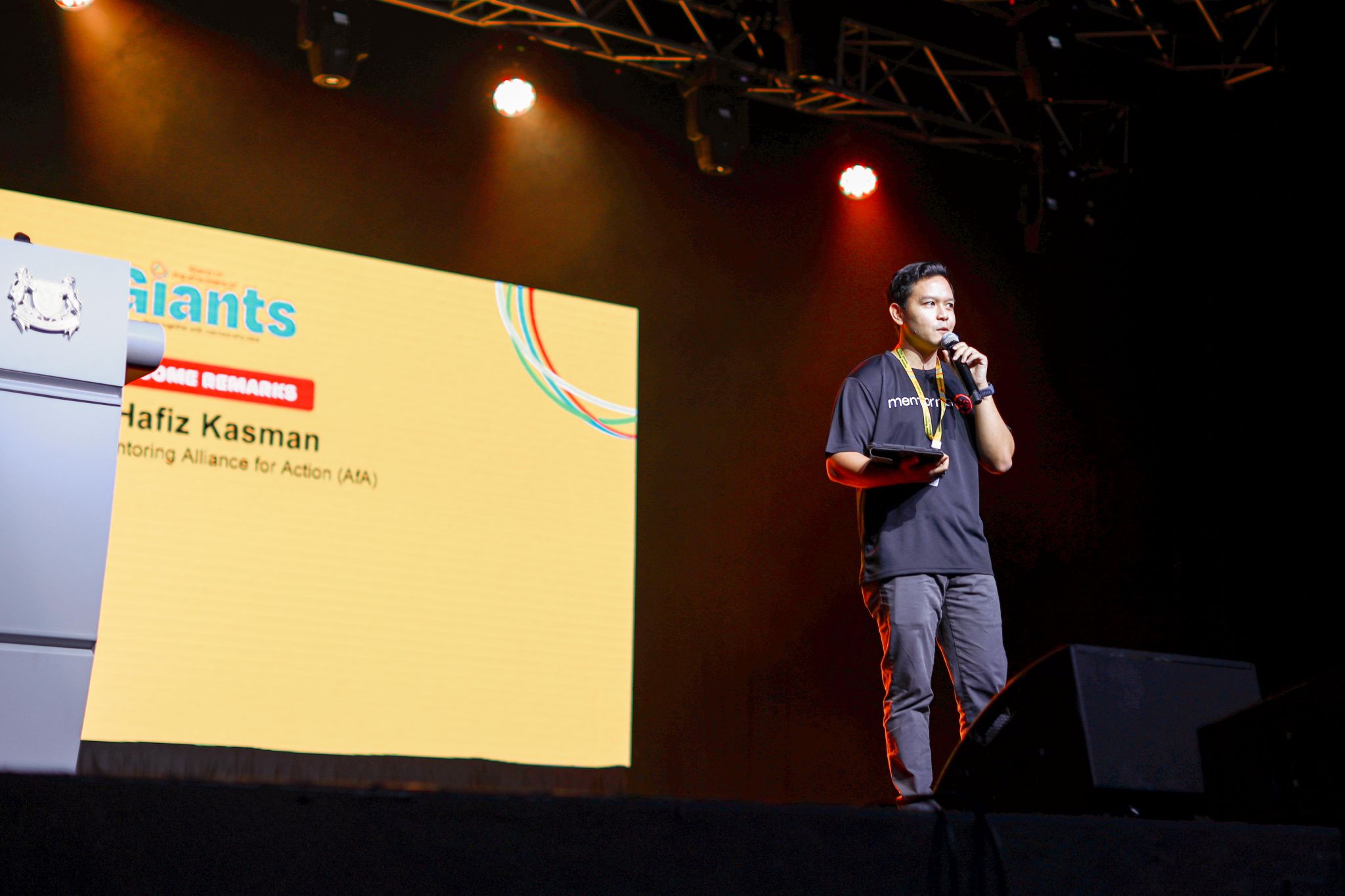 Photo from Hafiz's LinkedIn
Photo from Hafiz's LinkedIn
Communication was a challenge for Hafiz too. Despite his background as a fluent speaker of both English and Malay, he still needed to work on his Bahasa, especially in the cities outside of Jakarta.
Broadening horizons through the ASEAN Youth Fellowship
Lim and Hafiz were both part of the ASEAN Youth Fellowship (AYF) programme, which brought young leaders from across the region together, organised by the National Youth Council (NYC) in partnership with the Singapore International Foundation (SIF). The 4th AYF in 2022 was inspired by Cambodia’s ASEAN Chairmanship theme of “ACT - Addressing Challenges Together”.
With participants from all over Southeast Asia, the diversity in the different views and thoughts made the programme fruitful as they experienced learning journeys, dialogues and cross-cultural exchanges.
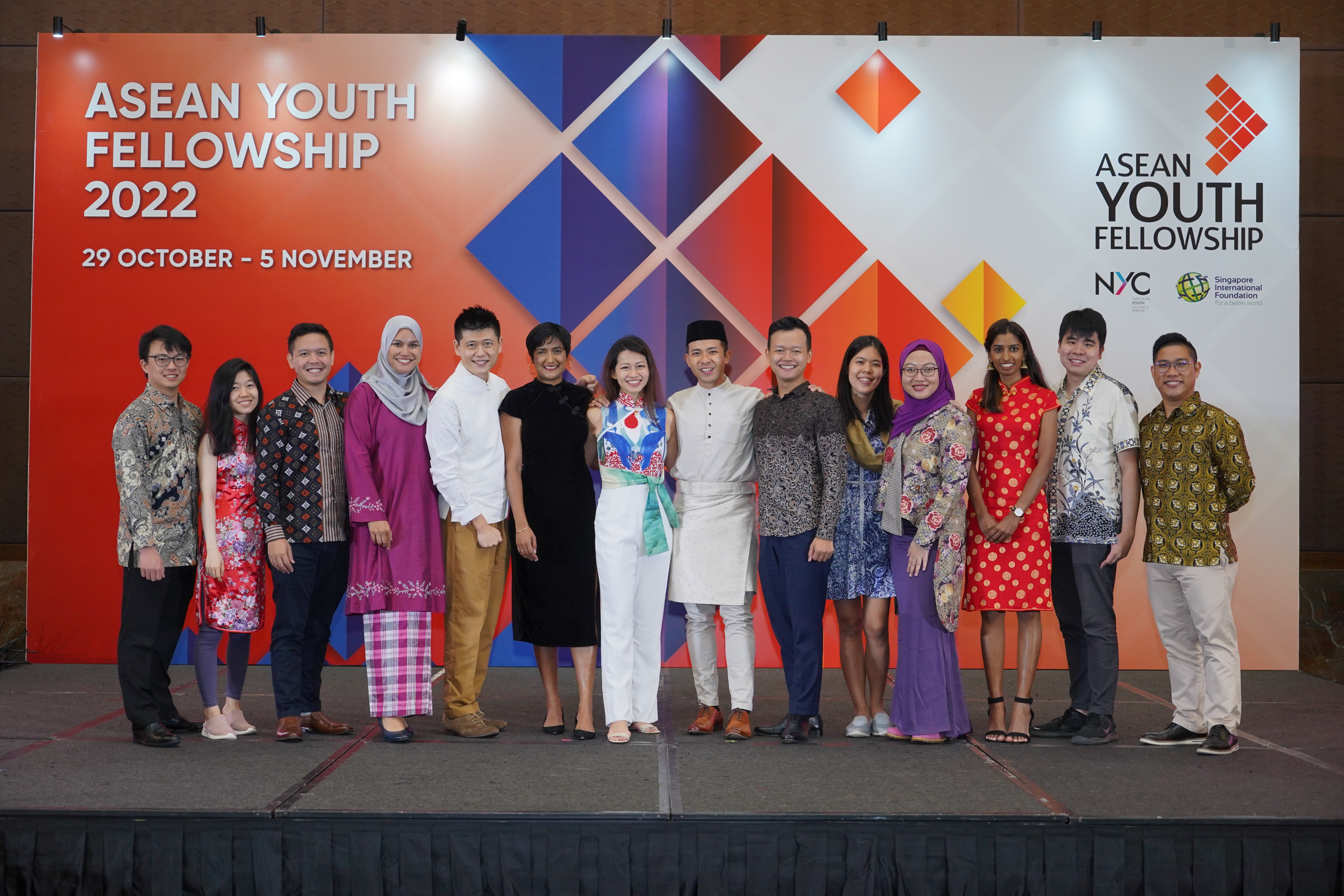 Photo from National Youth Council
Photo from National Youth Council
In particular, Lim recalls a talk by the Minister for Education, Culture, Research, and Technology for Indonesia, Nadiem Makarim.
The AYF participants were able to ask the minister about his challenges and experiences in his current role, and the talk helped shed light on pertinent issues facing the region, with one of his messages for the participants being that it is better to try and fail than to not have tried.
The experience also helped forge friendships between the participants, and Lim and Hafiz both shared that the connections made are still strong.
When any of the AYF participants travel around Southeast Asia, they try to find ways to cross paths and support each other in their ventures.
Through the connections and friendships formed, Hafiz shared that “I know now that if I go to any of the ASEAN countries today, I will not be alone.”
Can you have a family and constantly travel overseas?
Lim’s frequent travels — over 14 trips in just 2022, with all her trips lasting at least five days — can be a challenge for her family life as a married woman with two daughters, aged 13 and 16.
While it is not easy to balance the demands of family and work-related travel, Lim feels like she has found a solution — one that requires constant communication with her daughters and husband.
Lim shares that she has always explained her work to her daughters since they were young — talking to them about why she works, and why she travels so much.
She makes an effort to engage the girls in what she does, even sharing her challenges at work and talking through solutions, which helps them understand what their mother does.
Lim recalls a moment when one of her daughters proudly showed off a website to her friends, saying, “my mom built this!”
To Lim, this indicated she was on the right track, and that her daughters are supportive of her work.
Things have also gotten easier as the girls get older — now in their teens, they can fly out to meet her to spend time together outside of Singapore.
Lim recently extended a work trip to Korea, so her daughters could join her for a week of holidaying.
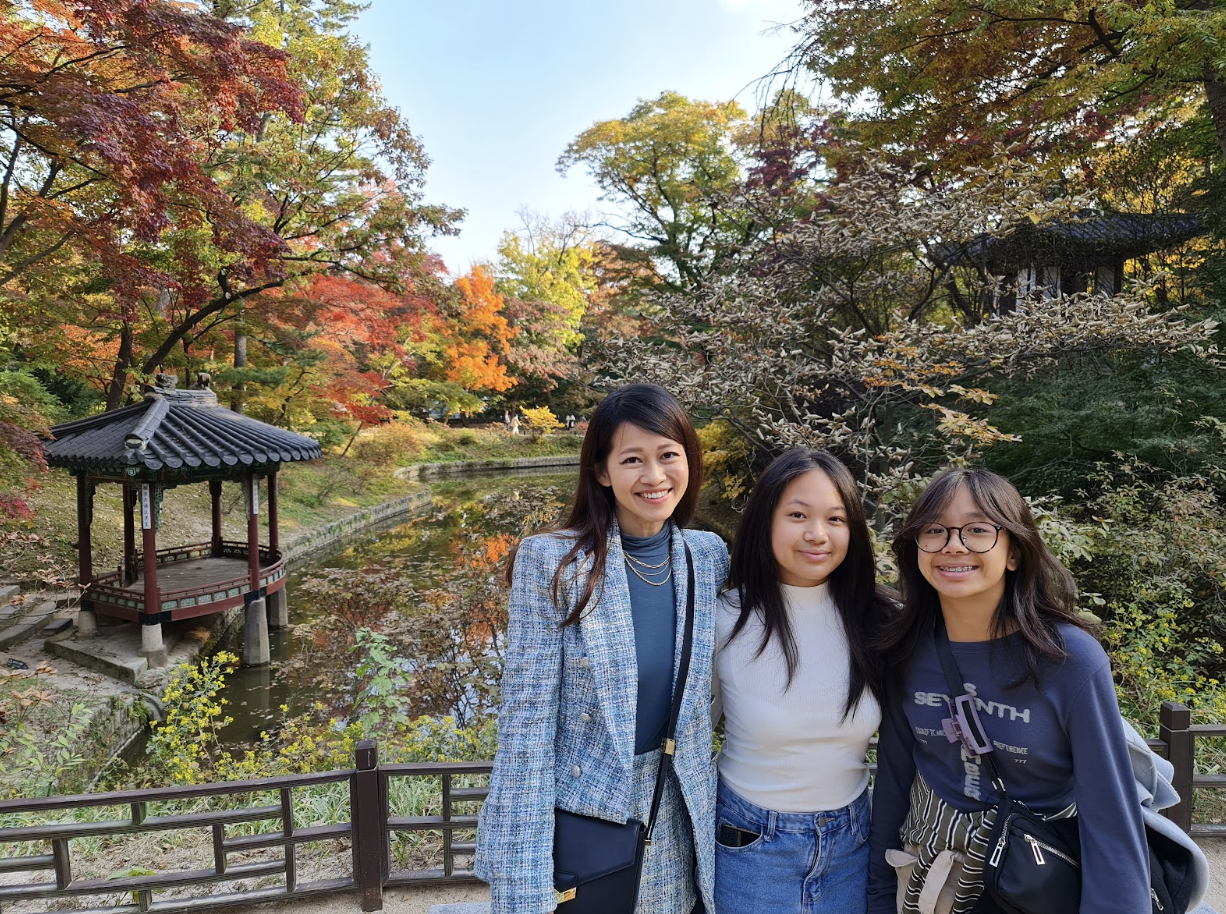 Photo from Ee Ling
Photo from Ee Ling
Parenting while constantly travelling for work
Lim has worked out an arrangement at home that accommodates her frequent trips, involving compromise and a common understanding with her husband.
Such conversations aren’t easy, but they have proved to be important for Lim and her husband, who sat down at the beginning of 2022 to discuss their household arrangements as her travels began to pick up as Covid-19 travel restrictions were lifted.
While Lim’s approach to parenting differs from the traditional expectations of a mother, she shares that she does not see travelling overseas as a matter of prioritising work over family.
Instead, she feels comfortable owning her unique family arrangements as something she chose. “As long as it was a choice you made and it wasn’t forced on you - you're picking the types and number of balls to juggle,” says Lim, noting that others may well choose to live in a different way.
Lim acknowledges that she will not be able to attend every tournament or recital involving her daughters, but shares that she is at peace with that decision.
She explains that she wants to be careful to avoid inadvertently creating expectations that her children will need to reciprocate when they are older.
Still, when one of her daughters was going through a particularly difficult period in life, Lim did not hesitate to drop work commitments, and took a leave of absence to give her daughter the undivided attention required.
To Lim, this was simply a matter of priorities.
Sometimes, there’s a need to let go
For Hafiz, moving to Jakarta meant he had to leave behind a passion.
He was very active in the mentoring scene. He contributed to the building of ground-up mentoring initiatives to help other teens, such as SMU’s The Mentoring Circle and the Mendaki Club as well as the co-chair of Mentoring SG.
However, mentoring involves a lot of face-to-face interaction, so it has been a struggle for him to keep up with all the programs. Hafiz had to make the difficult decision to step away from mentoring.
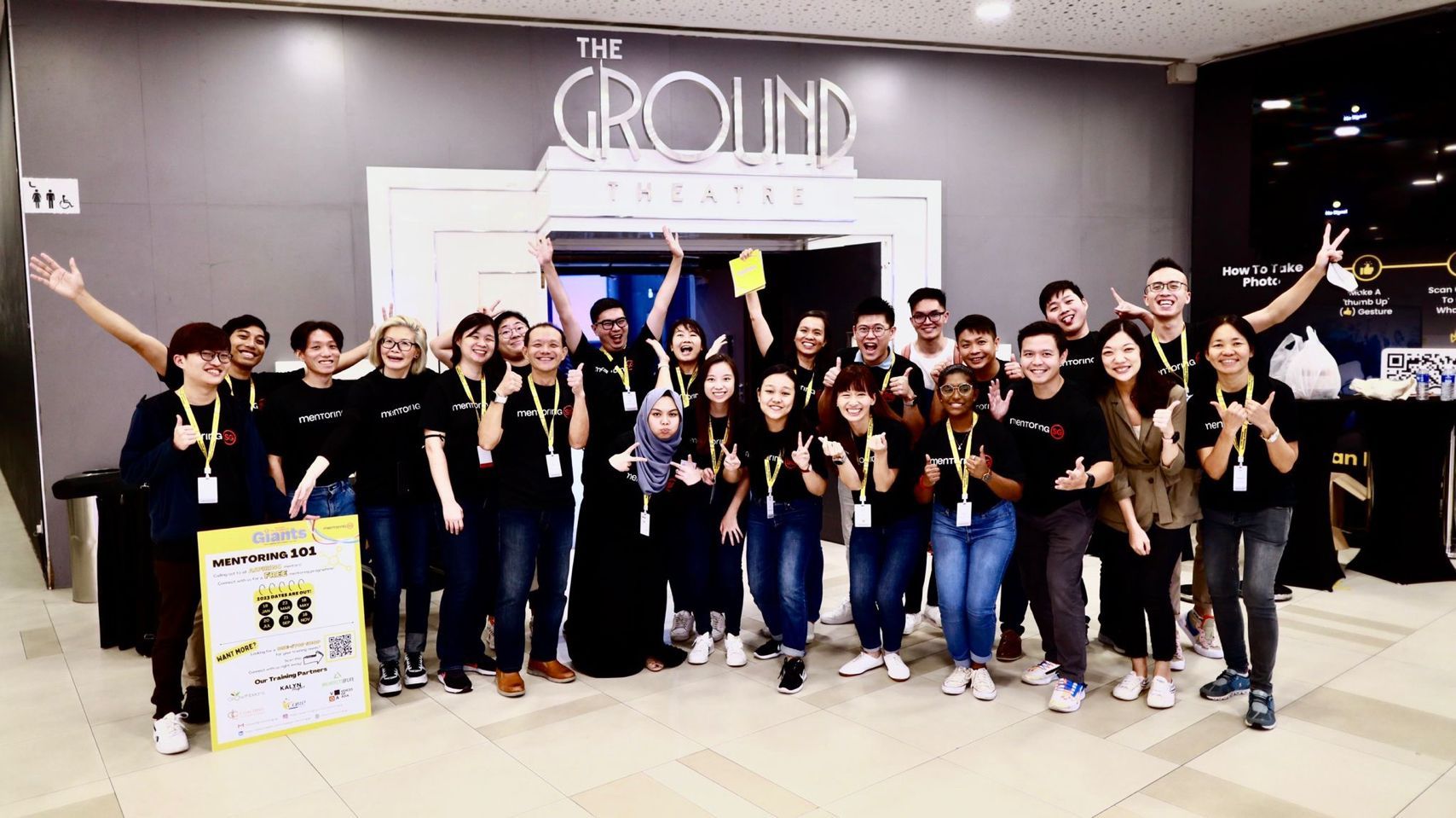 Photo from Hafiz's LinkedInIt is tough for him to give up something he enjoys, but he understands his limitations. There is only so much he can do online as he thinks he is unable to contribute enough as a mentor overseas compared to in person. Therefore, his responsibility now is to ensure a suitable successor is lined up across the initiatives and projects he founded.
Photo from Hafiz's LinkedInIt is tough for him to give up something he enjoys, but he understands his limitations. There is only so much he can do online as he thinks he is unable to contribute enough as a mentor overseas compared to in person. Therefore, his responsibility now is to ensure a suitable successor is lined up across the initiatives and projects he founded.
“It is definitely not easy but it means that I can focus on things on my plate. I will do it better once I remove some stuff off.”
Should I take the leap of faith to work overseas?
Going overseas, whether for work or study, is something Hafiz sees as a necessary experience for all Singaporean youths.
To him, it is a great learning experience that can play a considerable part in self-development and help people learn about themselves, while picking up valuable exposure to other cultures.
Hafiz feels that Singaporeans need to be more open to working in foreign markets early in their careers, even if it means making the hard decision to accept a lower salary in the short term.
To him, the time spent overseas will help in one’s understanding of different markets and offer a new perspective that’s not available in Singapore — making for a unique competitive edge that not many possess.
“From a career perspective, it’s quite imperative for Singaporeans to seek out overseas exposure,” he muses.
He strongly encourages youths to bite the bullet and go abroad, if they have the option.
His golden advice to those who wish to pursue a career overseas:
“Always come with an open mind, don’t come in with the mindset that you are better than others”.
How do I know if working overseas is right for me?
Meanwhile, Lim’s advice to youths who want to work overseas is to start with a bit of self-reflection.
To those considering pursuing a career overseas, she poses two questions.
“Why do you want to go overseas? And what is stopping you?”
To Lim, establishing one’s motivation to go overseas and what one hopes to achieve is crucial.
What emerges from Lim and Hafiz’s sharing is that it takes a lot of courage to pursue a career overseas.
While some may romanticise the idea of working abroad, there are hard questions one must ask before making their choice.
But the benefits are clear — and perhaps well-summarised in one observation shared by Hafiz.
When asked about whether he misses home, he said:
“There are a lot of things in Singapore that I miss when I’m in Jakarta, but there are [also] a lot of things I miss in Jakarta when I’m in Singapore.”
He shares that it takes discipline and some forward planning to be able to catch up with his family in Singapore despite being based in Jakarta.
But he’s also gained some perspective on what “home” means.
“To me, home is where you feel that you belong, and feel you can grow, and feel safe,” he mused.
Looking back on his time spent outside of Singapore, Hafiz left us with a poignant comment:
“I think my perception of home just got wider.”
This sponsored article by the National Youth Council allows this writer to dream of working overseas. NYC encourages youths to pursue and seize opportunities in the ASEAN region. If you want to deepen your sociocultural and economic understanding of the region, check out our NYC international programmes and the Asia-Ready Exposure Programme!
Top photo from National Youth Council
If you like what you read, follow us on Facebook, Instagram, Twitter and Telegram to get the latest updates.
